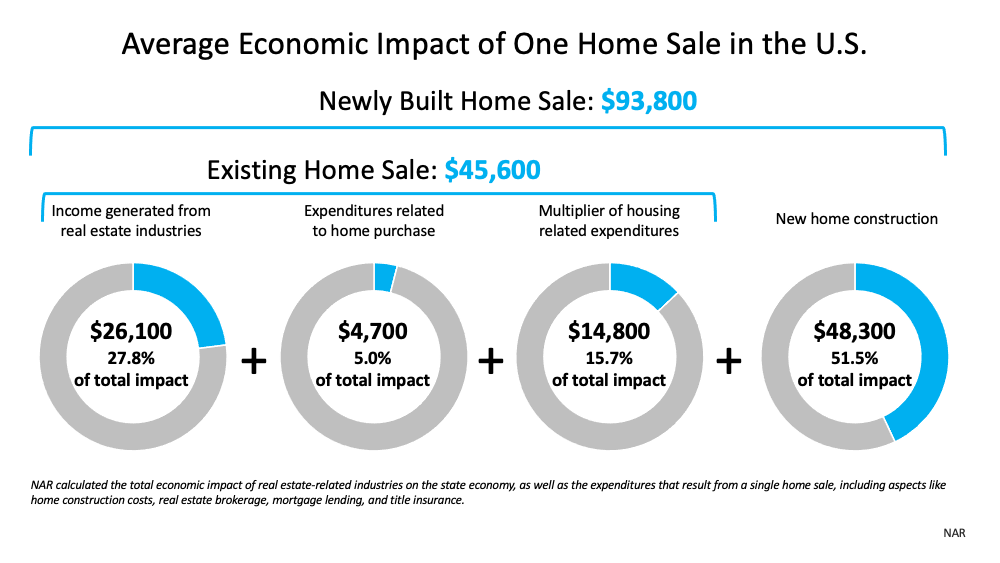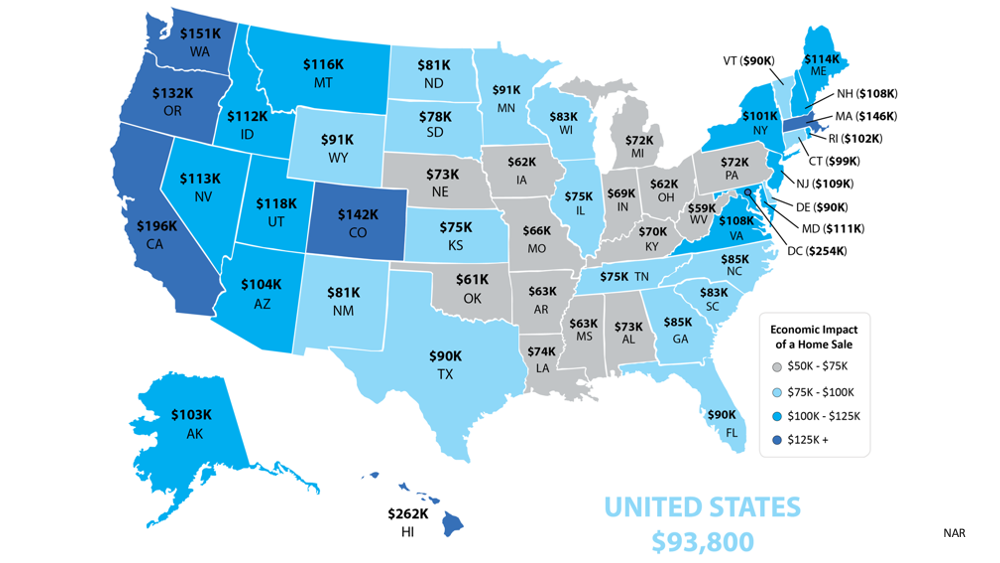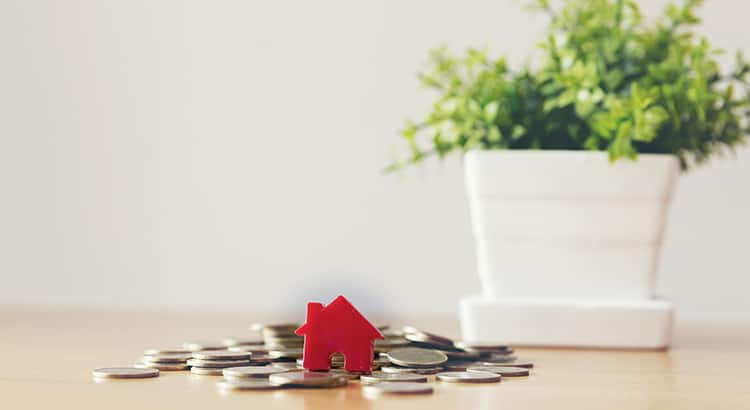If you’re thinking of buying or selling a house, chances are you’re focusing on the many extraordinary ways it’ll change your life. What you may not realize is that decision impacts people’s lives far beyond your own. Home purchases and sales are significant drivers of economic activity. They have a major impact on your community and the entire U.S. economy via the multiple industries and professionals that take part in the process.
The National Association of Realtors (NAR) releases a report each year that highlights just how much economic activity a home sale generates. The chart below shows how the sale of both a newly built home and an existing home impact the economy: To dive a level deeper, NAR also provides a detailed look at how that varies state-by-state for newly-built homes (see map below):
To dive a level deeper, NAR also provides a detailed look at how that varies state-by-state for newly-built homes (see map below): As you can see, a single home sale can have a massive effect on the overall economy. Ali Wolf, Chief Economist for Zonda, talks about this in a recent article, noting there’s a significant impact at each distinct phase of the transaction:
As you can see, a single home sale can have a massive effect on the overall economy. Ali Wolf, Chief Economist for Zonda, talks about this in a recent article, noting there’s a significant impact at each distinct phase of the transaction:
“The housing market contributes to the economy in four main stages: during planning and land development, throughout the actual construction of the home, at the point of sale, and upon moving in.”
When you buy or sell a home, you’re leaving a lasting impression on the community at large in addition to fulfilling your own needs. That’s because each stage of the process involves numerous contractors, specialists, lawyers, town and city officials, and so many other professionals. Every individual you work with, from your trusted real estate advisor to the architects who design new homes, has their own team of professionals involved behind the scenes.
Bottom Line
Homebuyers and sellers are economic drivers in their community and beyond. If you’re thinking of buying or selling, let’s connect today to start the process. It won’t just change your life; it’ll make a powerful impact on our entire community.
![Your Checklist To Get Ready To Sell [INFOGRAPHIC]](https://resellingla.com/wp-content/uploads/2021/08/Your-Checklist-To-Get-Ready-To-Sell-INFOGRAPHIC-20210827-MEM-1187x1536-1.png)
Surprising Shift Favors Homeowners: Buyers Now Prefer Existing Homes
In April, the National Association of Home Builders (NAHB) posted an article, Home Buyers’ Preferences Shift Towards New Construction, which reported:
“60% of people who were looking to buy a home in 2020 said they’d prefer new construction to an existing home.”
However, it seems buyers are now shifting their preferences back to existing homes.
The latest Consumer Confidence Survey reveals the percentage of Americans planning to buy a home in the next six months is virtually the same as it was back in March. However, the percentage that plan to buy a newly constructed home is lower for that same period.
NAHB confirms this sentiment in their latest Housing Trends Report. The organization explains that existing homes are now the top preference among today’s buyers. Here’s a breakdown of those findings:
Why the shift?
There are several reasons why buyer preference is shifting. Here are two that impact purchasers looking to move in now:
- The process may move faster. Builders may not be able to guarantee when the house will be complete and ready for move-in due to supply chain challenges with materials like lumber and appliances. If you buy an existing home, not only is it ready, it also likely has a refrigerator, range, and other necessary home appliances already.
- There are no unexpected costs during the buying process. With the price of land, labor, and lumber being so volatile, many builders are including an escalation clause in the price negotiation to cover rising expenses. With an existing home, the final price you will pay is negotiated upfront.
Bottom Line
If you’re a homeowner looking to sell, your house is more attractive to a greater number of buyers as compared to earlier in the year. This might be the time for us to connect to discuss the possibility.
![Ready To Sell, but Don’t Know Where You’ll Go [INFOGRAPHIC]](https://resellingla.com/wp-content/uploads/2021/08/Ready-To-Sell-but-Dont-Know-Where-Youll-Go-INFOGRAPHIC-20210806-MEM-835x2048-1.png)
